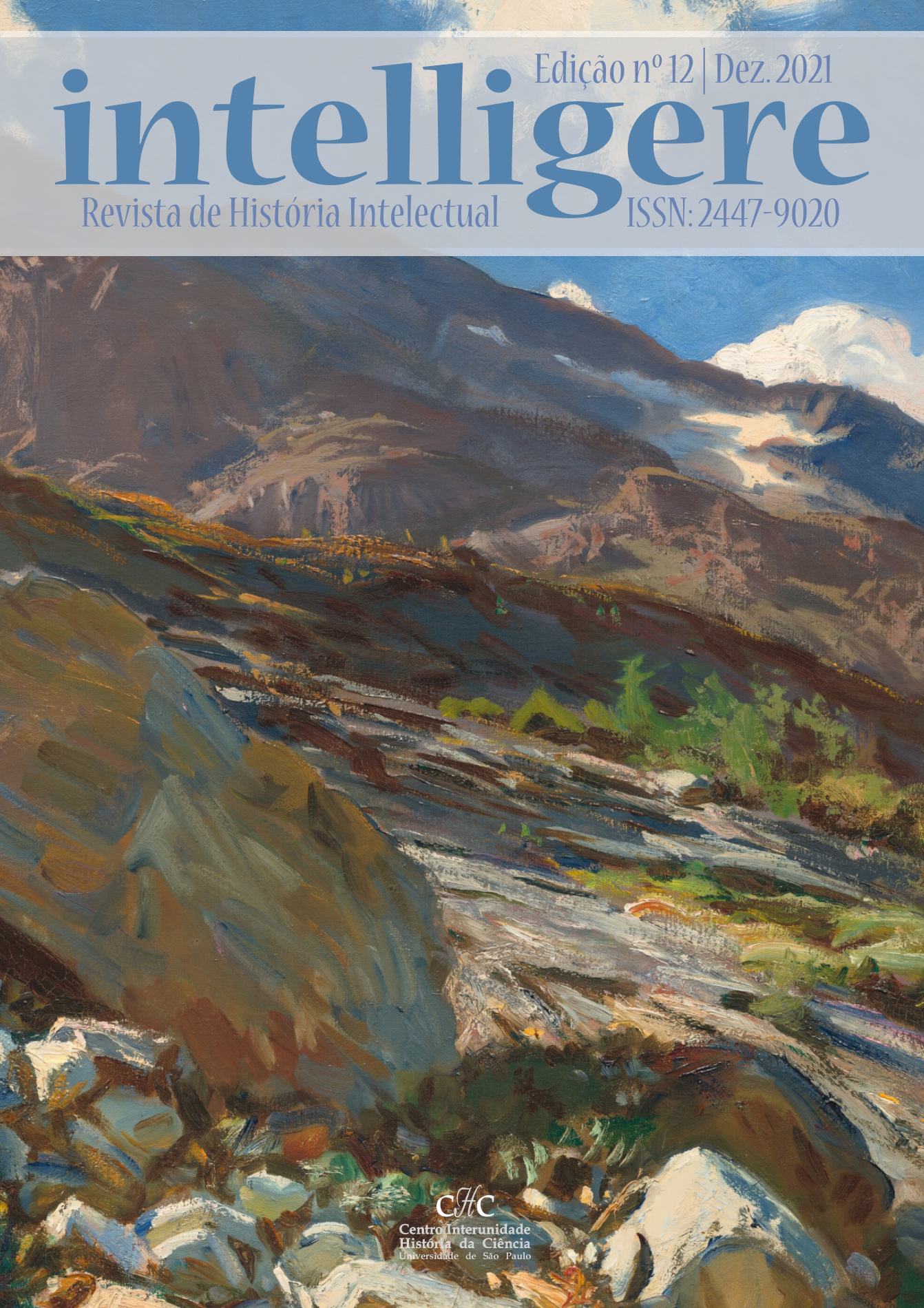The meaning of history: considerations about historicism in Karl Popper
DOI:
https://doi.org/10.11606/issn.2447-9020.intelligere.2021.194862Keywords:
Karl Popper, Historicism, Fallibilism, Theory of HistoryAbstract
The traumatic experiences triggered by totalitarian regimes in the 20th century gave impetus to the criticism that Karl Popper (1992 – 1994) makes of the systems of ideas that harbor the belief, whether by laws or for some historical reason, in the ordering of destinies of individuals. We aim to present Popper’s criticism of the set of ideas he named historicism, that is, that it would be the task of the Social Sciences to make predictions based on the discovery of the laws of a teleological history The threads that guide Popper's main theses will be pointed out in the works: The Poverty of Historicism (1944-45) and The Open Society and Its Enemies (1945), in addition to the dialogue with authors such as Raymond Aron (1905-1983), Isaiah Berlin (1909-1997) and François Furet (1927-1997). By showing the impossibility of making accurate predictions based on selective interpretation of the multiple aspects that constitute historical events, Popper calls into question the alleged laws that would determine the plot of a teleological history, while affirming his belief in the possibilities of human agency.
Downloads
References
ARON, Raymond. L’opium des intellectuels (1955). Paris, Calmann-Lévi, 2004
BARROS, José D’Assunção. Teoria da história, vol. II: os primeiros paradigmas: positivismo e historicismo. Petrópolis, Rio de Janeiro, Vozes, 2011.
BERLIN, Isaiah. Political ideas in the romantic age. Second edition published by Princeton University Press, EUA, 2014
CALDAS, Pedro Spinola Pereira. As dimensões do historicismo: um estudo dos casos alemães. OPSIS, vol. 7, nº 9, jul-dez 2007.
FURET, François. Le passé d’une illusion: Essai sur l’idée communiste au XX siècle, Éditions Robert Laffont, S.A., Paris 1995.
FONTANA, Josep. A história dos homens. Bauru, São Paulo, EDUSC, 2004.
LLOSA, Mario Vargas. La llamado de la tribu. Penguin Random House Grupo Editorial, Barcelona, 2018.
MILLER, David. Sir Karl Raimund Popper. In: Khronos: revista de história da ciência, N 1 São Paulo: Humanitas, 2010.
MARTINS, Estevam de Rezende. Historicismo: tese, legado, fragilidade. História Revista. 7. 1-22. Jane./dez., 2002.
O’HEAR, Anthony. Karl Popper: filosofia e problemas. São Paulo: Fundação Editora da UNESP, 1997.
POPPER, Karl. O racionalismo crítico de Karl R. Popper. In: REALE, G; ANTISERI, D. História da filosofia, v. 7: de Freud a atualidade [tradução Ivo Storniolo]. – São Paulo: Paulus, 2006.
POPPER, Karl. The Open Society and Its Enemies. First single-volume Princeton University Press printing, 2013.
POPPER, K. The Poverty of Historicism. New York : Routledge, 2002
POPPER, K. Conjectures and Refutations. New York : Routledge, 2002
PELUSO, Luis Alberto. A filosofia de Karl Popper: epistemologia e racionalismo crítico. Campinas, SP: Papirus, Pontifícia Universidade Católica de Campinas, 1995.
REIS, José Carlos. História & teoria: historicismo, modernidade, temporalidade e verdade. – 3. ed. – Rio de Janeiro: FGV, 2006.
SNYDER, Timothy. Sobre a tirania: vinte lições tiradas do século XX para o presente. Tradução Donaldson M. Garschagen. – 1ª ed. – São
Downloads
Published
Issue
Section
License
Copyright (c) 2021 Romário Ney Rodrigues de Souza Souza

This work is licensed under a Creative Commons Attribution 4.0 International License.
Autores que publicam em Intelligere concordam com os seguintes termos:
- Autores mantém os direitos autorais e concedem à revista o direito de primeira publicação, com o trabalho simultaneamente licenciado sob a Licença Creative Commons Attribution que permite o compartilhamento do trabalho com reconhecimento da autoria e publicação inicial nesta revista.
- Autores têm autorização para assumir contratos adicionais separadamente, para distribuição não-exclusiva da versão do trabalho publicada nesta revista (ex.: publicar em repositório institucional ou como capítulo de livro), com reconhecimento de autoria e publicação inicial nesta revista.
- Autores têm permissão e são estimulados a publicar e distribuir seu trabalho online (ex.: em repositórios institucionais ou na sua página pessoal), com reconhecimento da autoria e publicação inicial nesta revista.




